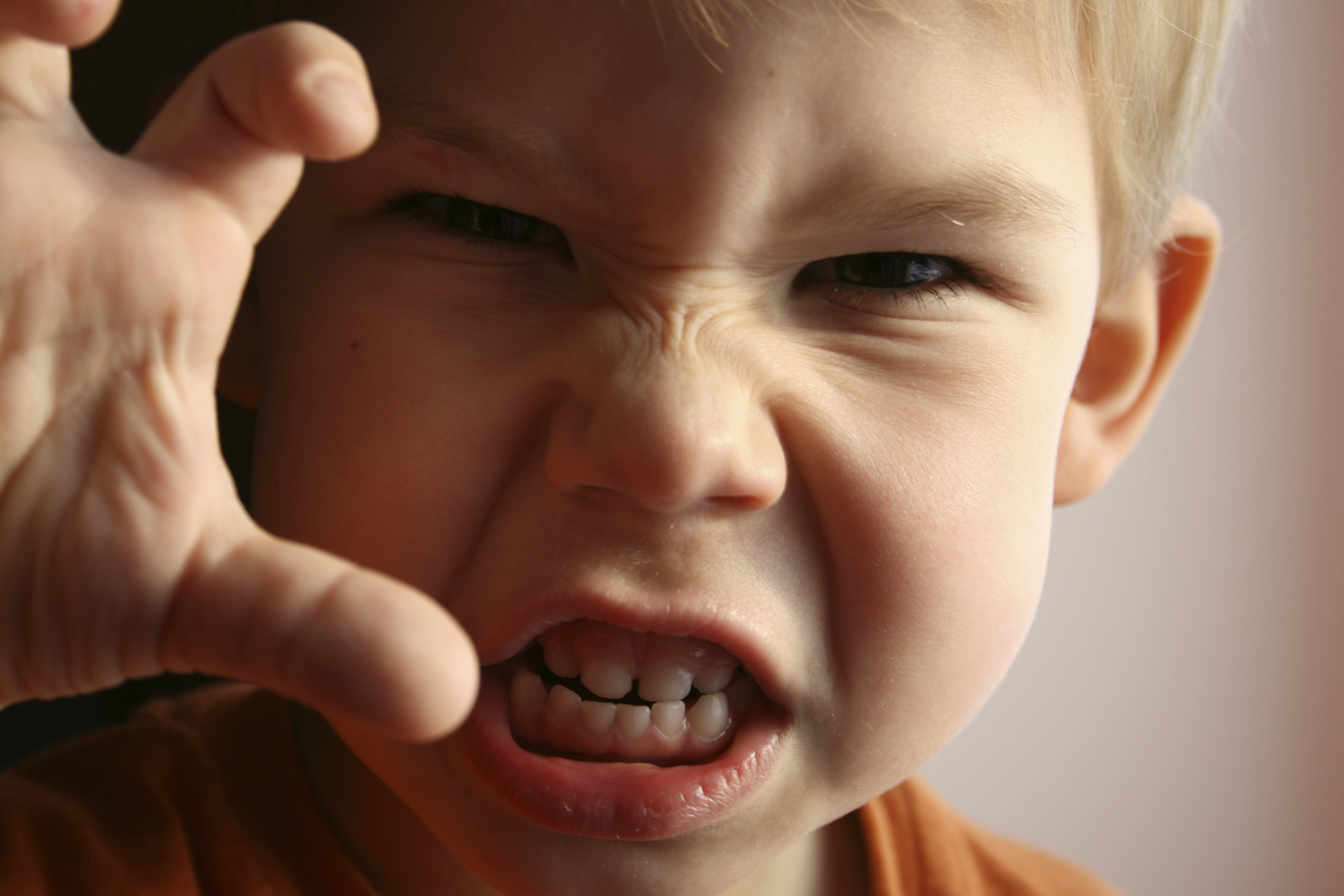![]()
Dear Hand in Hand,
Please help. My 4-year-old son has had a turbulent time at pre-school and has become very aggressive. I am seeing this as an issue around separation. We have increased Special Time, and I'm finding he has a huge, driving desire to play from the minute I pick him up at midday. This play is very violent, like robots lasering each other, or cars crashing or me being locked in jail. Is this “normal” boys stuff?
I am also Staylistening, a lot! Still, every request I make is met with defiant refusals – from sitting in a chair to eating lunch, all the way through to bath, book, and bed. Every upset is huge, and accompanied by kicking, or hitting, or telling me to “go away.”
I am beginning to feel like every rebuttal is an attack on me, his way of saying I shouldn't have left, or leave him in this place, but I have little other choices. Mostly, I miss my sweet boy. I feel like I've lost a happy, contented, carefree toddler to this fierce creature. How can I nurture his “good” side when I feel like I never see it?
Dear Concerned Parent,
 When our children’s behavior goes off-track, it can set off cascades of worry. What’s this about? What if I’ve lost him? What did I do wrong? What’s wrong with him? The reality is that your sweet boy is still there, looking to you with the hope that you’ll help him make sense of his world.
When our children’s behavior goes off-track, it can set off cascades of worry. What’s this about? What if I’ve lost him? What did I do wrong? What’s wrong with him? The reality is that your sweet boy is still there, looking to you with the hope that you’ll help him make sense of his world.
When he reconnects after a day of school, the safety he experiences when he’s with you allows feelings he’s packed down inside all day long to bubble up. He no longer needs to hold it all together and ‘manage.’ Instead, he senses an opportunity to release some of what’s stored in his ‘emotional backpack’. As difficult as this can feel for parents, it’s actually helpful in the long run.
Your support will allow your son to work through the difficult feelings that are sparked by the separation, or what he’s observing at school, or hurtful moments that he’s experienced. You actually don’t need to understand what the upset is about to help him, just continue looking for opportunities to connect through play and Staylisten when he shows you the hard stuff.
It’s so smart to increase Special Time when you sense an emotional disconnect. Special Time allows your son to take control of his relationship with you, to show you what’s weighing on him and to soak up your warm attention.
It sounds like recently, he’s showing you what feels hard and is trying to reconnect through play.
Should I be Worried About Violent Play?
Violent play is indeed normal, and not just for boys!
Violence enters children’s consciousness in different ways, including their exposure to videos and television. In addition to the screen time we allow in our homes, our children are exposed to other children’s attempts to work through what they’ve been exposed to in the media and in their lives.
These themes often come up in play and often hold a lot of power.
Joining Violent Play Can Be Useful
 One way to help when he initiates violent play is by joining him and taking on the less powerful role. This listening tool is called Playlistening. When violent play makes parents uncomfortable, it’s tempting to try to make it go away by banning it or ignoring it. Neither of these approaches is helpful in the long run.
One way to help when he initiates violent play is by joining him and taking on the less powerful role. This listening tool is called Playlistening. When violent play makes parents uncomfortable, it’s tempting to try to make it go away by banning it or ignoring it. Neither of these approaches is helpful in the long run.
Prohibiting rough play just sends it underground. He might stop playing laser robots or jail when you’re around, but his need to work through how he feels about these themes will continue and he’ll be left to navigate it without your help. Ignoring play that makes you uncomfortable also leaves him to figure things out on his own, and it usually isn’t pleasant for a parent to have to pretend not to notice something that really bothers them.
The alternative is to join him in Playlistening, even though it can feel counterintuitive! But you have a chance to reach him in play and show him all of these feelings and fears he has are ok. Your laughter playing these games with him soothes his emotional center and shows him you love him no matter what.
Meet Violence with Love in Play
Here's how you can meet violence with love in play. If he’s a robot trying to laser you, announce that lasers make you want to kiss a robot on the nose and playfully stumble after him asking to kiss him. If he lets you, great! Plant the kiss on his nose and then say you want to kiss an eyebrow. If he laughs you know you’re on the right track. You can play games like this for a long time, as long as the laughter continues.
If he runs away as you move in for a kiss, pretend to try to catch him and turn it into a game. “Come here you fierce robot, you’re fast but I’m faster, you’ll never get away!”
Then lumber after him while he outsmarts you. Again, laughter means you’re on the right track.
Another variation is that when you get lasered, you can pantomime a long, drawn out, overly dramatic death with lots of groaning and moaning. With your final breath fall down right on top of him and see what happens.
Or, you can also protest and run away and try to hide, only to be caught and vanquished. Or hold up your own laser and then mess things up in some way you think he’ll find funny, like slicing off your own foot or tripping and falling.
And there’s always the ‘love gun’ approach from Larry Cohen’s book Playful Parenting. “Oh no! I just got hit with a laser,” you says. “Wait, I’m starting to feel something. It must be a love laser and I love you!”
Again go after him with hugs and kisses. There are lots of variations on Playlistening games but all are intended to bring laughter and connection and to let him know that when he shows you his ‘worst’ you’re right there with him, confident in his goodness.
Doesn't Play Around Violence Encourage Aggression?
Sometimes parents are afraid that if they encourage behavior that makes them uncomfortable, it will escalate. This might happen for a while, but once you get laughter going, tension begins to dissolve. This might shift things on it’s own or else contribute to building the safety your son needs to work through deeper feelings. As these feelings come to the surface and you Staylisten, your son will have the opportunity to work through what’s weighing on him.
Think of This Behavior Like Your Son Letting You Know He Needs You
 It’s hard to be on the receiving end of defiant refusals, especially when they happen over and over. You can think of this behavior as your son letting you know that he needs you. He directs his upset at you because he’s hoping you’ll help him. It sounds like you’re doing just that through Staylistening when your son’s behavior is offtrack. Staylistening, moving in close and focusing on being with him while he kicks or hits or tells you to go away, will allow him to work through the difficult feelings he’s working so hard to manage.
It’s hard to be on the receiving end of defiant refusals, especially when they happen over and over. You can think of this behavior as your son letting you know that he needs you. He directs his upset at you because he’s hoping you’ll help him. It sounds like you’re doing just that through Staylistening when your son’s behavior is offtrack. Staylistening, moving in close and focusing on being with him while he kicks or hits or tells you to go away, will allow him to work through the difficult feelings he’s working so hard to manage.
Staylistening will help your son, and Listening Partnerships will help you. It’s very difficult, if not impossible, to use the listening tools effectively when you don’t have enough emotional support for yourself. Your worry that this is somehow your fault, that you shouldn’t leave your son at school, that you’ve hurt him and he’s responding by attacking you, are feelings that you can explore with your listening partner. When you make time and space to express what’s going on inside, especially when you have the warm attention of another adult who appreciates how hard you’re working and how much you love your son and want what’s best for him, things will shift. Everything goes better with solid support.
You haven’t lost your son and he’s good through and through. As you join him in play and support him as he offloads his big feelings, you’ll find that you have your sweet, content, thoughtful, boy back- closer than ever.
Tools and Support for Handling An Aggressive Child
Learn this powerful tool for responding playfully to aggression: 20 Playful Ways To Heal Aggression
Listen to our podcast on Aggressive Play with Lawrence Cohen, author of Playful Parenting
Our self-guided course helps you understand what drives your child’s difficult behaviors, and shares practical tools and support. Learn more about the class Helping Your Child with Aggression.
